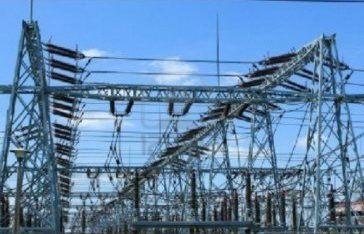
Mkpoikana Udoma
Port Harcourt — The Hydrocarbon Pollution Remediation Project, HYPREP, says it has delineated 3,000 hectares of polluted Ogoni mangroves assessed by UNEP, for onward restoration, saying that it was already in the process of remediating 1,747 hectares.
This is as HYPREP disclosed that over 4,000 hectares of mangroves have been destroyed by decades of oil spills in Ogoniland.
Project Coordinator of HYPREP, Prof Nenibarini Zabbey, who disclosed these in his message to mark the 2024 World Wetlands Day, said all stakeholders must work together to implement sustainable practices that protect and restore the ecosystems for the benefit of current and future generations.
Zabbey said the theme for 2024 World Wetlands Day ‘Wetlands and Human Well-being,’ was apt as it resonates deeply with Nigeria, as the nation was blessed with abundant wetlands that play a vital role in supporting biodiversity and the livelihoods of our communities.
According to him, wetlands, particularly mangroves, sustain life, foster biodiversity and ensure the health and prosperity of communities through their regulatory, protecting, replenishing, and sustaining functions, and typically serve as natural buffers against floods, store and purify water, and provide food and habitat for various plant and animal species.
“However, despite their invaluable contributions, wetlands face numerous threats, including urbanization, reclamation for social projects, plastic and crude oil pollution, deforestation, dredging, and the impact of climate change.
“For instance, over 4000 hectares of mangroves have been destroyed by decades of oil spills in the Ogoni area of the Niger Delta alone. This has exacerbated poverty, as traditional livelihoods dependent on healthy mangroves are destroyed. The degradation of these crucial ecosystems poses risks to biodiversity and compromises the well-being of communities that depend on wetlands for survival.”
Zabbey also disclosed that HYPREP has taken on the responsibility to restore hectares of shoreline and mangrove ecosystems in the Ogoni area of the Niger Delta that have been degraded by oil pollution.
“HYPREP has undertaken a Preliminary Shoreline Clean-up Assessment of over 3000 hectares of shoreline. Conducted a chemical characterization of oil levels in the sediment. Delineated the 3000 hectares of the assessed shoreline into 833 grids and started the process of remediating 1,747 hectares of the 3000 hectares.
“HYPREP has piloted mangrove rehabilitation of 460 hectares. We are providing skill training to 5000 Ogoni youth, including artisanal refiners, to create alternative livelihoods as a means to prevent recontamination of remediated ecosystems. Trained 90 Ogoni youth and women in mangrove restoration and empowered them with grants to set up mangrove nurseries.
The HYPREP boss further said change in attitude toward the environment, sustainable use of ecosystems, and co-management of ecological infrastructure by communities were essential components of a sustainable wetland’s restoration regime.
“HYPREP is committed to raising awareness about the significance of wetlands and advocating for their protection. We call upon the government at all levels, civil society, businesses, communities, and the public to join hands in preserving these critical ecosystems. Our collective efforts can contribute to achieving sustainable development goals, particularly those related to clean water and life on land and underwater, as well as climate action.
“This World Wetlands Day, HYPREP encourages individuals and communities to engage in activities that promote wetland conservation, such as clean-up drives, educational programmes, and tree-planting initiatives.
By working together, we can ensure that wetlands continue to thrive for the benefit of current and future generations. We therefore urge you to appreciate the beauty and importance of wetlands and pledge to be stewards of these vital ecosystems. We can create a sustainable future by prioritizing our environment’s well-being and our communities’ prosperity.”



